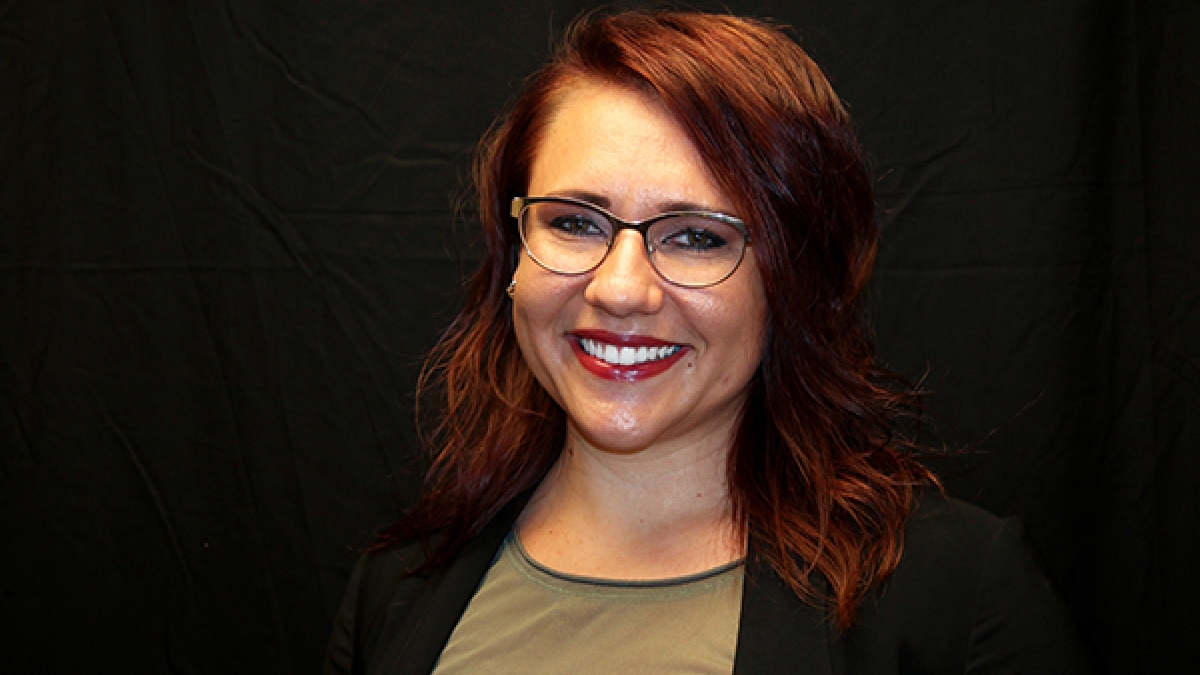ASU student looks at the individual impact of social media

In a social climate where individuals clamor to text, tweet, blog, post, like, favorite and share any and every little detail about their personal lives – as well as the lives of their friends and family – does the feedback, positive or negative, ultimately shape who they are as an individual?
It is a question that Arizona State University student Megan Lindsay has been examining through her dissertation work.
Lindsay, who is working toward her doctorate from the School of Social Work in ASU’s College of Public Service and Community Solutions, has been researching the use of information communication technologies (ICTs) within the everyday lives of females ages 18-29 – the highest user group in the United States.
ICTs are any device used to reach out to another individual – including cell phones, email and social media sites.
Lindsay is looking to create a well-rounded picture on how commonly people use ICTs and how this technology impacts their development.
“Everybody is having several interactions online, every day through mediated communications,” said Lindsay. “That’s where all this began; I started to wonder how people take up who they become when they are exposed to so many different things.’
Before beginning her qualitative dissertation research, Lindsay co-wrote an article with professor Judy Krysik, published in the scholarly journal Information, Communication, & Society, in 2012, that replicated a previous harassment study. This quantitative study indicated that mediated interaction was meaningful and influential within the young adult years.
Lindsay recruited 22 females (ages 18-29) for her dissertation research, interviewing each individual twice. The criterion for participants was that they had to have an account to more than one social media site, and that they go online every single day. Lindsay would then examine what the participants would share with her as far as what type of feedback they would receive from various postings about themselves or their views on varying topics.
“I wanted to know as a whole what people do to internalize these interactions, and how it influences who they become,” Lindsay said.
As the study progressed, the results of how these participants chose what to post and where they posted it began to produce some intriguing results. Despite the majority of ICTs being able to handle and process almost every type of media, the participants admitted to being selective.
“People have different accounts for that very purpose, they do not want to be shoving social issues down their family’s throat, and create controversy with people they have important relationships with in real life,” continued Lindsay. “They were more inclined to keep their controversial or charged opinions to themselves on Facebook, and let them out on Twitter or Tumblr.”
Lindsay says that is part of the allure for sites such as Twitter and Tumblr. They give users the opportunity to experiment with thoughts and opinions because the social make-up of their network on those sites, and those similar to them, allows them to feel more open to share, unlike Facebook, where users are more likely to have multiple family members and close personal friends viewing what they post.
Controversial opinions and subject matter are not the only topics Lindsay has focused on, though. Cases of online abuse or even cyber-bullying are unfortunate issues that frequent users of ICTs come across, and what Lindsay found in these cases also came as a bit of a surprise.
“More than one participant mentioned having what I considered to be online abuse experiences from their adolescence,” Lindsay explained. “But it did not stop them from having a robust and fulfilling online life in their adult years, and I’m surprised by that.”
Even with individuals who have experienced bullying or other forms of harassment in their online lives, the research points out that the personal relationships and communication these platforms offer is too priceless to give up.
“It’s not worth staying away because it does so much to fulfill other parts of their social life,” Lindsay said. “Online spaces where it is just peers are really important for young adults.”
Lindsay’s work highlights how words and actions, no matter how they are mediated, still have an effect on the emotions and personality of a person. As ICTs continue to be a major means of communicating in our daily lives, the thought process of individuals shaping decisions of who is allowed to see various aspects of their lives becomes more significant than ever.
Written by Christopher Hernandez

